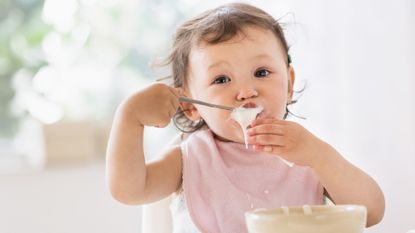
Turkey purée is a great example of food that you can cook for yourself but also share with your baby.
If you cook a roast turkey (or a chicken, the recipe is exactly the same) at the weekend, save about a cup of the clean breast meat to make into this baby meal. Perfect for little ones aged 7 months and upwards. Make sure to remove any skin (especially if you salted it), and just used the meat. It's a great way to use up leftovers. Alternatively you can buy turkey breasts and cook them yourself - poaching them is easiest, or wrapping in foil and baking until cooked through. Then you simply need to whizz up the meat and slowly add water to it to reach the right consistency for your baby.
Ingredients
- 1 cup cold and cooked boneless turkey - chopped into no bigger than 1 inch pieces
- ¼ cup cooking juice or plain water
WEIGHT CONVERTER
Method
- Place turkey chunks in blender or food processor and purée until a powdery mix is formed.
- Slowly add water and puree further until a smooth consistency is created.
- Add as much liquid as needed to make a consistency appropriate for your baby.
Top tip for making turkey purée
If you're using up leftovers you can add other things to the turkey purée if they are age-appropriate. Simply boiled carrots or parsnip are easy to add in. Potatoes are great as well, as long as they have not been heavily seasoned.
You might also like...

Octavia Lillywhite is an award-winning food and lifestyle journalist with over 15 years of experience. With a passion for creating beautiful, tasty family meals that don’t use hundreds of ingredients or anything you have to source from obscure websites, she’s a champion of local and seasonal foods, using up leftovers and composting, which, she maintains, is probably the most important thing we all can do to protect the environment.
-
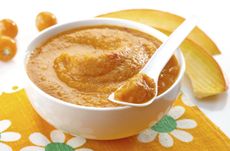 Baby food: Squash purée
Baby food: Squash puréeButternut squash purée is perfect food for growing babies-rich in minerals and vitamins, and with a sweet and mild taste. This is a super simple recipe for babies
By Jessica Dady Published
-
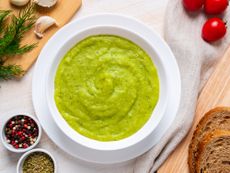 Green bean puree
Green bean pureeDeliciously smooth, vibrant green bean puree made with fresh beans and peas. Ready in just 20 minutes...
By GoodtoKnow Published
-
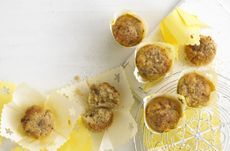 Annabel Karmel's apple and sultana muffins
Annabel Karmel's apple and sultana muffinsAnnabel Karmel's apple and sultana muffins are easy to make for - or even with - your little ones. Ready in just 30 minutes.
By Annabel Karmel Last updated
-
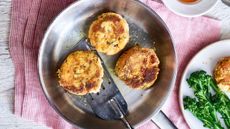 Sweet potato and courgette fish cakes
Sweet potato and courgette fish cakesThese sweet potato and courgette fish cakes take 30 minutes to make and can be served with chips, salad, or steamed veg on the side...
By Rose Fooks Published
-
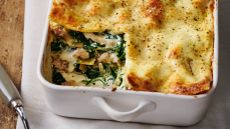 Chicken and spinach lasagne
Chicken and spinach lasagneThis chicken and spinach lasagne is a great new take on the family favourite and it’s easy to prepare during the day to cook come dinner time...
By Jessica Ransom Published
-
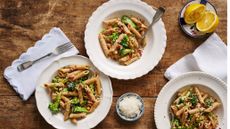 Broccoli pasta with pancetta
Broccoli pasta with pancettaThis broccoli pasta with pancetta takes 30 minutes to cook making it a great speedy family dinner...
By Rose Fooks Published
-
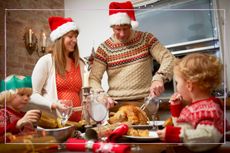 The Christmas dinner food item that's loved the most is revealed, and surprisingly it’s not turkey
The Christmas dinner food item that's loved the most is revealed, and surprisingly it’s not turkeyHave you got this most popular Christmas dinner dish nailed?
By Selina Maycock Published
-
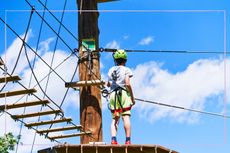 5 easy ways to let children take risks (without your anxiety going through the roof)
5 easy ways to let children take risks (without your anxiety going through the roof)Here's why allowing children to put themselves in 'healthy' risk situations is actually good for them
By Selina Maycock Published
-
 I’m a child psychologist - this 2-step technique will stop your kids answering back… and it sounds so easy
I’m a child psychologist - this 2-step technique will stop your kids answering back… and it sounds so easyWe've spoken to a child psychologist and parenting expert about how to handle kids who answer back, and she shared a simple two-step tip.
By Ellie Hutchings Published
